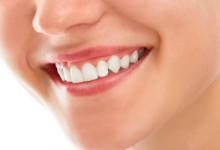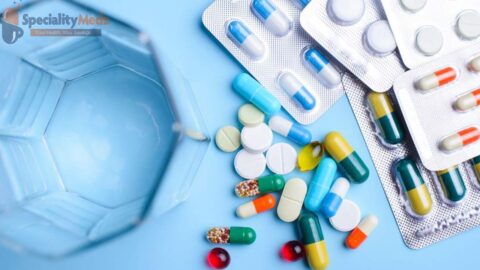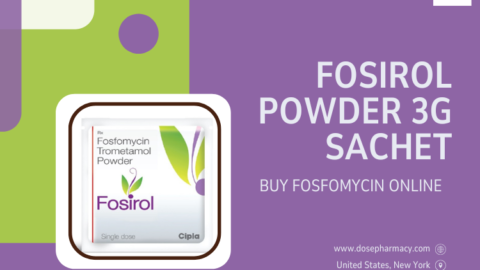Steps to Maximize Liptid Intake for Health in 2024

Are you aware of the crucial role lipid play in your overall health? These essential nutrients are often misunderstood, yet they are vital for various bodily functions. From supporting brain health to regulating hormones, lipid have a significant impact on our well-being. But with so much conflicting information out there, figuring out how to maximize lipid intake can feel overwhelming.
Fear not! This guide will break down everything you need to know about lipid and how to incorporate them effectively into your diet. Whether you’re looking to boost energy levels or improve heart health, understanding and optimizing your lipid intake is the first step toward achieving those goals. Let’s dive into the world of lipid and unlock their potential benefits for your body!
Understanding Liptid and Their Importance in the Body
Lipids, commonly referred to as fats, are more than just a source of energy. They play essential roles in maintaining cell structure and function. Every cell membrane is composed largely of lipids, providing barriers that protect cellular integrity.
These nutrients also serve as carriers for vitamins A, D, E, and K. Without adequate lipid intake, your body struggles to absorb these crucial vitamins.
Furthermore, liptid contribute significantly to brain health. The brain comprises around 60% fat; thus, healthy fats are vital for cognitive function and memory enhancement.
In addition to these functions, certain lipid help regulate inflammation within the body. This capacity can influence chronic disease risk factors such as heart disease or diabetes.
Understanding the multifaceted role of lipid highlights their importance in daily nutrition choices. Prioritizing healthy sources can lead to improved overall health outcomes.
How to Determine Your Recommended Daily Intake of Lipids
Determining your recommended daily intake of lipid is essential for maintaining overall health. Start by considering factors like age, sex, activity level, and specific health goals.
Consult with a healthcare provider or a registered dietitian to get personalized advice tailored to your needs. They can help you understand how much fat should come from healthy sources versus saturated fats.
The general recommendation suggests that 20-35% of your total daily calories should come from fats. This range helps ensure you’re getting enough essential fatty acids without overdoing it on unhealthy options.
Keep in mind the types of lipid you consume matter greatly. Focus on monounsaturated and polyunsaturated fats while limiting trans and saturated fats as much as possible.
Tracking what you eat using apps or food diaries can also provide insight into your lipid consumption patterns. Adjusting portion sizes may be necessary based on this data to meet your individual requirements effectively.
Read more: https://qiuzziz.us/how-to-choose-a-good-optician-essential-tips-and-considerations/
Tips for Choosing Healthy Sources of Liptid in Your Diet
When selecting healthy sources of liptid, focus on whole foods. Fresh fruits and vegetables are packed with essential nutrients that support lipid health. They offer fiber too, which helps regulate cholesterol levels.
Nuts and seeds should be your go-to for healthy fats. Almonds, walnuts, chia seeds, and flaxseeds provide beneficial omega-3 fatty acids while adding a satisfying crunch to meals.
Consider incorporating avocados into your diet as well. This creamy fruit is not just delicious; it’s rich in monounsaturated fats that promote heart health.
Another great option is fish—especially fatty varieties like salmon and mackerel. These fish contain high amounts of omega-3s that can boost overall wellbeing.
When choosing oils for cooking or dressings, opt for olive oil or avocado oil instead of saturated fats found in butter or margarine. Making these small changes can significantly enhance the quality of your liptid intake.
Incorporating More Omega-3 Fatty Acids into Your Diet
Adding more omega-3 fatty acids to your diet can be straightforward and enjoyable. Start by including fatty fish like salmon, mackerel, or sardines in your meals at least twice a week. These options not only provide omega-3s but are also rich in protein.
If you’re not a fan of seafood, consider plant-based sources such as flaxseeds and chia seeds. They make excellent additions to smoothies or oatmeal.
Walnuts are another tasty way to boost your intake. Snack on them directly or sprinkle them over salads for added crunch.
For those who want an easy option, fish oil supplements offer convenience without compromising quality. Just remember to consult with a healthcare professional before starting any new supplement regimen.
Experimenting with recipes that incorporate these ingredients can turn healthy eating into an exciting culinary adventure!
Lifestyle Changes to Support Optimal Liptid Levels
Making small adjustments to your daily routine can significantly enhance your liptid levels. Prioritizing physical activity is key. Aim for at least 150 minutes of moderate exercise each week. This simple change helps balance lipid metabolism and promotes heart health.
Hydration plays a crucial role too. Drinking enough water throughout the day aids in various bodily functions, including digestion and nutrient absorption, which are essential for optimal liptid processing.
Consider stress management techniques like yoga or meditation. Chronic stress can lead to imbalances in lipid levels, so finding time for relaxation can make a difference.
Sleep quality shouldn’t be overlooked either. Strive for seven to nine hours per night as restorative rest supports overall metabolic health, including how your body manages lipids.
Avoid tobacco products and limit alcohol consumption; both can negatively impact lipid profiles over time and hinder progress toward better health.
Conclusion
Understanding the significance of liptid in your diet is crucial for maintaining overall health. By determining your recommended daily intake, you can tailor your nutrition to meet your body’s needs effectively. Choosing healthy sources of liptid ensures that you’re fueling yourself with quality nutrients rather than empty calories.
Incorporating omega-3 fatty acids into your meals opens up a world of possibilities for enhancing heart health and reducing inflammation. This is where lifestyle changes come into play as well; adopting habits that promote optimal liptid levels can lead to lasting benefits.
Making informed choices about liptids not only enriches your diet but also supports long-term wellness. Staying proactive about what you consume empowers you to take control of your health journey, ensuring a balanced and vibrant life ahead.








